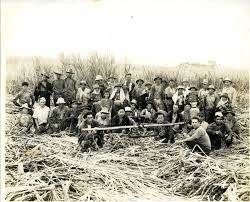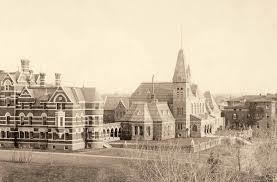
Nisei 二世
自己紹介でも書いてあるように祖母がアメリカ生まれの日系二世で、10歳の時に日本に帰化しました。祖母の影響が大きくあります。小さい時なぜ私はほかの人と同じような振る舞いができないのだろう?親が聞こえないので【デフファミリー(ろう家族)】いった聞こえる家族とはまた違う文化を後世していました。祖母がアメリカ生まれなので食事生活もアメリカ文化が入っていました。
私はできる!という考えは祖母の教えです。聞こえないからできないと不満言っていた私に祖母は聞こえない以外ゆんみは【できる】そしてたくさん【自慢(プライド)】をしなさい。といつも言ってくれました。
だから私は祖母には自慢話をたくさんしました。かけっこで1番だったよ。テストいい点取れたよ。映画に出たよ。などなど【小さなできた】を自慢に。それが自分を信じる力に育っていくことになっていったんですね。
いつしか祖母の日系二世に興味持ち、アメリカ留学をきっかけにいろんな日系2世に出会い、私なりに調べてレポートしたのが以下の英文になります。
Nisei
The Nisei were the second generation of Japanese to call America home. They have two choices of citizenship between Japan and America. When they turn 18 years old, they must decide to choose citizenship in one country. Today, many immigrants live in the U.S. They are happy to stay here. Some of them keep their culture and language. I am from Japan and studying at Gallaudet University now. I have been here for three years. I notice that Nisei do not have their own culture and language “why don’t Nisei cherish in Japanese culture?”
First of all, everyone looks at the history of immigration. Japan has very small area for farm, so farmers had to work in America. Japanese people started immigrate to Hawaii in 1868. There were 149 people (Historical background on the Nisei on-line: (http://www.mediajapan.com/ocsnews/96back/534b/534history.html) who were farm workers on sugarcane. The salary was small, but they worked hard to send money to their family in Japan. When they earned enough money in Hawaii, then they started to move to California, and set up their own businesses in 1885. The golden year was in 1925 in Los Angeles. The Little Tokyo became a big Japanese community. (Story of the Little Tokyo: on-line http://www.madeiajapan.com)
However, on December 7, 1941, the Japanese attack on Pearl Harbor put the Nisei and their parents in a difficult situation. People, who have in 1/16 more than Japanese blood, were sent to ten internment camps; whether, they are handicap, babies, and older people.
On February 19, President Franklin D. Roosevelt signed Executive Order 9066. “This decree gave the military the authority to exclude people from designated areas to prevent sabotage and espionage.” The camps were barren places. Now, no one lives there.
During World War II, Japanese Americans were discharged from military service. They were Americans and they wanted to fight for their country, the U.S, so they decided to establish Japanese-American military units called the 442nd Regimental Combat Team and the 100th Battalion. The military service was for the European War not Japan. They earned 900 Purple Hearts, 560 Silver Stars, 21 Bronze Stars, 52 Distinguished Service Crosses, the Congressional Medal of Honor was awarded posthumously to Sadao Munemori, and seven won the coveted Presidential Unit Citation. The secret Nisei Military Intelligence Service members served as analysts of Japanese code, Japanese strategy, and inquisitors of Japanese soldiers. (Historical background on the Nisei: on-line http://www.mediajapan.com/ocsnews/96back/534b/534history.html)
I interviewed two persons a deaf man and a hearing woman who had experience in an internment camp. At the National Japanese American Memorial Foundation office, I met Mary who is a Nisei woman. Her brothers and parents were from Nara, Japan, but she was born in the U.S. She can speak Japanese; however, she cannot write it. When her parents were alive, most of the time she spoke Japanese with them at home. Her parents required her to go to Japanese School in California. The school was only open from nine to noon on Saturday.
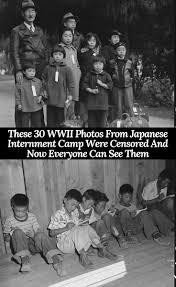
The teachers were Issei (first generation Japanese). They taught reading and writing in Japanese. At the time, she could write letters in Japanese. However, she did not improve her Japanese because she was not enthusiastic about the Japanese School. Now, she cannot write Japanese because she has not used it for many years. Her family was Christian, so her family was different from Buddhist families who tended to have strong Japanese philosophy. When her family went to an internment camp, she wanted to leave it quickly. At the time, she was 18 years old and the rule of the camp was that people under 21 years old must get parents’ consent. She made an excuse that she wanted to help her 15-year-old nephew. She could leave the camp and finally she was able to find work in Pennsylvania. That was why she only stayed in the camp for 18 months.
At the same time, she had already graduated from a high school. The camp had schools from elementary school to high school. Nisei who went to a college or university did not stay in camp.
The U.S. government could not keep all Japanese-Americans because it was a huge expense. So Japanese Americans in her situation who had jobs could leave camps. She was not mad at Americans or Japanese. She just wanted to get away from the camp. However, when Japanese military attacked Pearl Harbor, she was shocked.
After the World War II, she loved to visit many time her two relatives who are Buddhist priests in Japan because she wanted to increase her understanding Japanese culture. That is also why she took a job 30 years ago, which is relative with Japan. She has had a lot of opportunity for contact with Japan. She is proud of her Japanese blood and wants to keep the Japanese culture and tell Sansei, Yonsei (third and fourth generation Japanese) about it. Preservation of Japanese culture is very important for her. She also said me that she does not like the documentary film called “Rabbit in the Moon.” The film was negative to Japanese Americans. The documentary criticizes the 442nd Regimental Combat Team and the 100th Battalion. The director of the documentary talks about this view of the current situation. However, Mary said that the documentary should be identified as a 1950’s view.
Most Nisei believed their family would be free from U.S if Nisei joined the military service. Nisei went to war for their parents, the U.S and themselves. Nisei wanted to be accepted by American society.
Ernest Ikeda is deaf man and member of a second-generation deaf family. He is Sansei. He remembered that he was nine years old in the summer of 1942, when his family were sent to an internment camp. Then he was very shocked. He said that he was a very confused. His mother tried to communicate with U.S military by writing.
His family brought each of a suitcase and got on a truck with many people to a train. They just missed this train because they could not hear the announcement. So they had to get on a back wood freight train without shelter. It was a very cold night. When other people got off, his family took their seats. His family was relieved at the time.
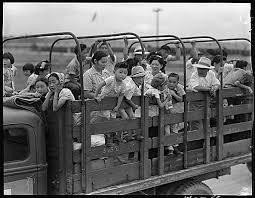
The first camp was at Tule Lake in California near Oregon. They got two rooms, 7110 A and B. they signed their names in the dark. When they got up and wanted to have breakfast, they did not know where the cafeteria was. When they found the cafeteria: breakfast was common American breakfast, lunch was soup, and dinner with rice was enough food for him. There were 13 deaf people. He remembers that played baseball with his friends.
His family only stayed at the camp one years before they were moved to a camp in Densen Arkansas. They had to prove their loyalty to the U.S. How? They must buy U.S. Bonds. The camp was more comfortable than the first camp. His father found a job, washing dishes. The salary was 16 dollars a month. That December, he had the first experience of a traditional Japanese New Year celebration. He had never seen that before. He enjoyed the celebration. They stayed at the camp one-year. Then they were sent to the Teron Arkansas Camp and Rohwer Camp, their third and fourth camps at the last camp his family was the only deaf member there, so they were very lonely since they did not have much communication with hearing people. During the last camp, his father found a job to go to in Ohio. He lived with his brother and sister. When he earned money enough, he took his family out of the camp and moved them to San Francisco by train in October 1945. One brother got off at San Jose. He and his sister went to the Barclay school for the Deaf. He was 13 years old, but he was placed in third grade. After he found the reason for the camp, he burned with anger at Japan and was embarrassed at the same time.
Later he went to Gallaudet University and graduated in the class of 1959! Now, he looks back at those years, he realized he had been very patient.
Now I realize that I have been mistaken in my view of Japanese Americans. I read a lot of books about their history. I always wondered why the Nisei didn’t seem to value their Japanese Culture. When I walked around in the U.S. cities, in the Korean and Chinese communities the people showed their language and their culture with pride. Also, there seem to be many more Korean and Chinese people, compared with Japanese. It is hard to find a real Japanese Community even in large cities in the U.S. Books do not have enough information about what Japanese Americans face.
I notice that Deaf Nisei are different from hearing Nisei. Deaf Nisei are limited themselves because Deaf Nisei have only American culture. Here there is not deaf Japanese school for Nisei and community for deaf Japanese Americans. So they can only learn from American culture. Only when they become older, they would become conscious of being Japanese. Most of them do not know what life is like in Japan. They ask their parents about it; however, they don’t explain it. Now I know the reason. Old Japanese people have a strong sense of shame. For example, when Japanese government does something very bad, people will feel shame. They should let allow their feelings become involved. Another example, is when children get an F grade, the children’s parents will have a sense of shame. I believe that Nisei’s parents felt very a shamed with the Japanese government. Then they hid Japanese culture.
Ikeda is Sansei. He does not want to marry with non-Japanese because he wants to keep his Japanese blood. He married a Japanese woman who is from Japan. Nisei just do not have a chance to show their pride. So it is I have been mistaken in my prejudice against Nisei. They are not American and also not Japanese. That is why they are called by a different name: Nisei.
Finally, American government has decided to repay the Nisei now. A meaningful lesson is now being told at the beginning of the 21st century. An important historical monument is being built in Washington DC. This monument praises the loyalty and the courage which the Japanese US citizens showed during World War II. It is a said testimony, which is exactly suitable for people who were able to answer a severe demand as the Japanese US citizens did so splendidly. Japanese Americans went to a desolate place, a camp when many stayed as long as four years. These 120,000 men and women and children had the courage. And, the monument admits the mistake the Americans made and loyalty to their country, the U.S.A. in the frenzy of the war. One of the acts for which the American government apologizes through the Civil Liberties Act, which the Congress enacted in 1988, the unfairness of having of Japanese US citizens' children fight, while their parents were unjustly deprived of the freedom the soldiers were risking their life. This is not a monument for Americans alone. All people all over the world who respect democracy will receive a lesson from this monument. It is not only a place to praise Japanese US citizens' patriotism. It has an addition the purpose as the place in which people can quietly think about war. The story of this rare kind is an important page in the united history. The monument is scheduled to be put up within the Federal triangle in Washington DC bounded by Louisiana avenue, New Jersey avenue, and D street.
The monument is a very good development for Nisei. It can change their lives. They need to suffer no longer any embarrassment the World War II. Today is peace. Also, they can share their memories many people who do not know about the Nisei are experiences and situation. There will be more to learn from Nisei’s life because of the monument. I believe that many Japanese people have been mistaken as I was. Japanese people and the Japanese government should praise the Nisei’s life and also the Japanese government must pay attention to Nisei and apologize. Every summer in August, TV mass media gives a lot of publicity to World War II, but it does not say anything about the loyalty of the Nisei. That is why the Nisei still hide from Japanese society. If Japanese people pay attention for Nisei, I believe that they will be pleased and become proud of themselves.
10/13/1999
ここから先は
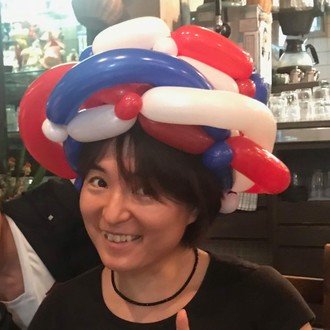
ゆんみがアメリカ7年半滞在したことでASL脳が出来上がっています。ゆんみが見てきたアメリカ文化を思い出しながら、ご紹介します。ASL動画も…
犬との暮らしはどういうものか?異文化に触れると感性豊かになれます(^^♪ワクワクを毎日あなたに届けて、楽しんでいただければと思います(^^♪

